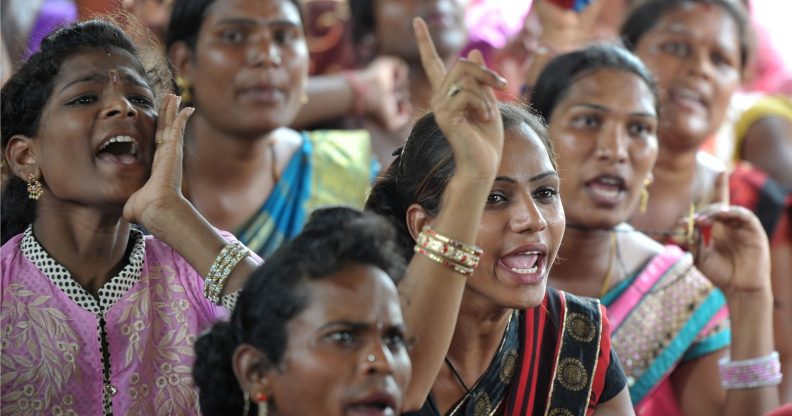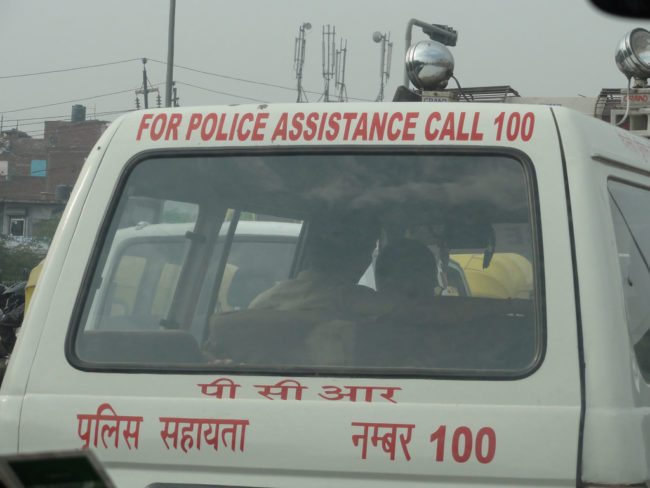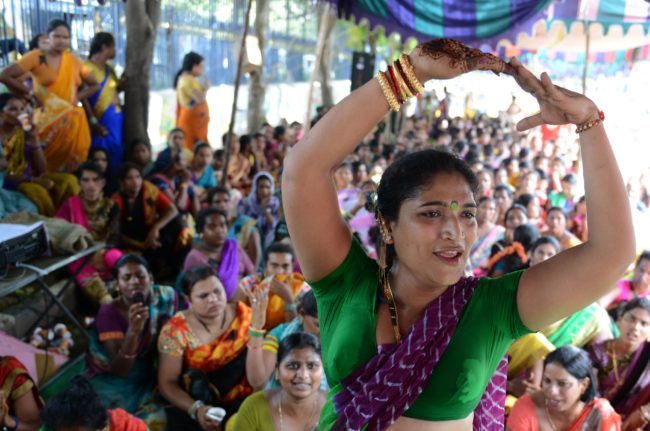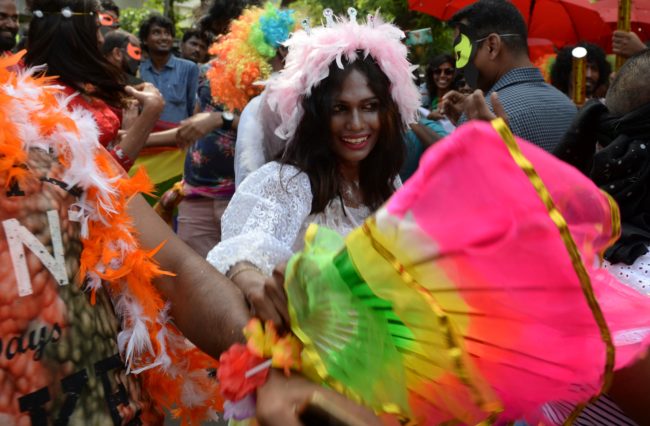Transgender police officer faces the sack because he’s ‘too short’ to be a man

(NOAH SEELAM/AFP/Getty Images)
A transgender police officer in India could told he could lose his job after transitioning – because he’s “too short” to be a man.
The transgender officer, Lalit Kumar, filed a plea at the Bombay High Court over a battle with his employers, Maharashtra Police.
India Today reports that the officer was told he could not come back to work as a man after transitioning, despite serving for a decade with no issue.
The dispute comes because Kumar initially qualified as a police officer under female recruit standards.
Police bosses argue that Kumar should not be allowed to return to work after transitioning to male, as he does not meet a minimum height requirement for male officers.
Apparently Kumar is two centimetres too short for the standards imposed on male recruits, and would therefore be ineligible for the role he performed as female.
Kumar, who is posted at Beed Police Station of the Maharashtra Police Headquarters, sought the court’s permission to continue working after transitioning and undergoing surgery.

(Creative Commons photo/Hiroo Yamagata)
Kumar’s maternal uncle, Arjun Ujgare, has been vocal in the family’s support of his transition.
Speaking to India Today, Arjun said: “We were looking for a boy to get her married to. At that point, she told her family that she did not want to get married and in fact wanted to become a male. We all agreed and have been with her on this.”

Trans activists in India (Getty)
Kumar’s lawyer, Sayed Ejaz Naqvi explained to the judges that his client’s human rights were at stake.
As per the Protection of Human Rights, 1993, in the Maharashtra Police Rules, all officers have ensured the “right to [a] meaningful life”, Naqvi declared.
Kumar, who has served for 10 years, said in his petition that he wants a respectable life and feels that the police order is discriminatory.
“Sexual preferences are covered under and are part and parcel of rights to privacy of an individual. Which falls under Fundamental Right to Life & Liberty as per Article 21 of the constitution of India,” says Naqvi.
“The police department is erring and violating the constable’s fundamental rights by not allowing her to reform her sexual preferences.”

(Getty)
Elsewhere in India, there has been progress on trans rights.
The police force in Tamil Nadu altered its rules earlier this year so that trans people could apply.
Dhakshayini, Prabha Mohan, and Jagadeeswaran alias Nazriya started training in their new positions as constables in the beginning of November.
Previously, India made Prithika Yashini its first trans police officer last year, but only after a protracted legal battle.

